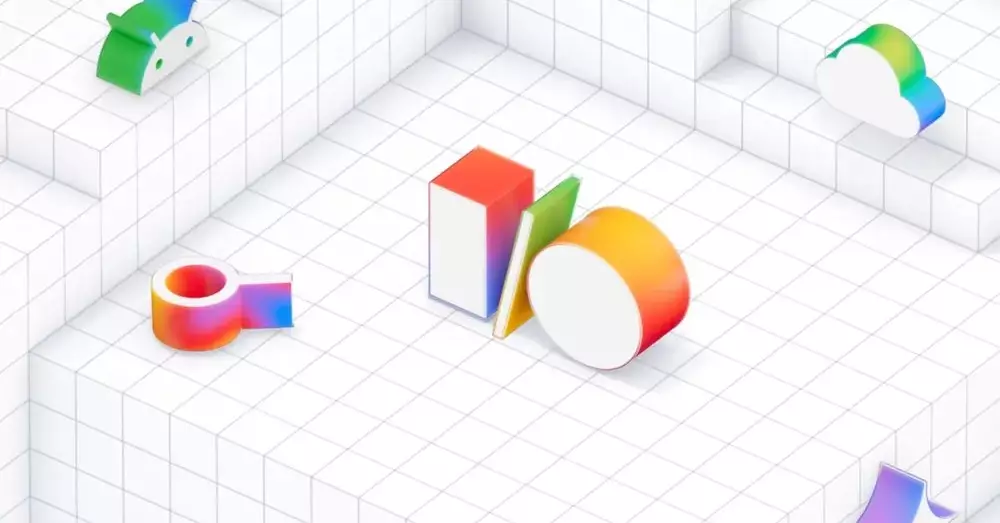As Google prepares to host its annual I/O developer conference, anticipation reaches a fever pitch. The spotlight is firmly on artificial intelligence (AI) and extended reality (XR), signaling a paradigm shift in how the tech giant is positioning itself in a rapidly evolving digital landscape. Unlike previous years, where announcements about the latest Android operating system updates were commonplace, the focus this time appears to be singularly on AI advancements. Companies must adapt to the burgeoning competition from formidable players like OpenAI and Microsoft, and I/O 2023 seems poised to showcase Google’s latest strategies and innovations to reclaim its standing as a leader in the AI sector.
The keynote session, scheduled for May 20th at 10 AM PT/1 PM ET, will likely be a marathon session filled with detailed insights about Google’s AI initiatives. A livestream will be available, ensuring accessibility for developers, tech enthusiasts, and the general public alike. With I/O keynotes traditionally spanning multiple hours, viewers should brace themselves for an engaging deep dive into the future of technology. This year, the commitment to AI is expected to dominate discussions, with Google’s ongoing development of its Gemini project—an AI model designed to compete with industry titans—taking center stage.
Gemini and the AI Race
The previous two editions of I/O have been overshadowed by the escalating AI race, with Google at the forefront of this technological revolution. The emergence of Gemini not only highlights Google’s response to the AI surge but also the strategic importance of enhancing this platform to engage modern consumer demands. The expectation is that the company will unveil new features and capabilities that increase Gemini’s utility across devices, including smartphones.
The anticipated updates may usher in tools that redefine how we understand and interact with technology. Speculations surrounding ambitious projects like Project Astra point to Google’s desire to go beyond the conventional applications of AI, exploring uncharted territories that can radically change user experiences. Such aspirations may resonate with developers eager to incorporate advanced AI functionalities into their applications, potentially ushering in a new era of creativity and innovation.
Extended Reality: More Than Just a Tease
While AI is undoubtedly a focal point, Google has also signaled intentions to discuss its advancements within the realm of extended reality. XR encompasses augmented reality (AR), virtual reality (VR), and mixed reality (MR), and Google appears ready to showcase its innovative strides in this domain as well. Despite limited previous discourse on the Android XR operating system, the upcoming keynote may be the venue where Google fully details its plans, possibly revealing new prototypes, notably smart glasses that have been the subject of industry speculation.
In competition with Samsung’s anticipated Project Moohan, Google must articulate a clear vision for its XR strategy. The window is closing for Google to articulate how its software solutions for XR will integrate with new hardware, particularly as the market heats up with competing offerings. By presenting credible updates on Google’s XR initiatives, the company could fortify its relevance in this dimension of immersive technology.
The Shift from Hardware to Software Focus
Interestingly, Google seems to be moving away from its former emphasis on using I/O as a launch pad for new hardware, including Pixel phones, tablets, and smart home devices. A conscious choice appears to be made, providing a clear focus on AI and XR instead. Any hardware announcements relevant to new devices may have already been preemptively shared, and the company likely hopes that deflecting attention from traditional product launches will ensure that AI takes center stage without distractions.
This shift illustrates a savvy recognition of current industry trends, wherein software capabilities often outweigh hardware specifications in determining consumer engagement and retention. Google’s determination to lead in the AI space aligns with a broader acknowledgment that a dynamic software ecosystem is key to long-term success in an increasingly competitive environment.
It’s a progressive and strategic move by Google to prioritize software advancement over hardware releases. While this may not resonate with every consumer segment, tech enthusiasts and developers should be electrified by the imminent focus on groundbreaking innovations intersecting AI and XR that the I/O 2023 keynote promises to deliver.

